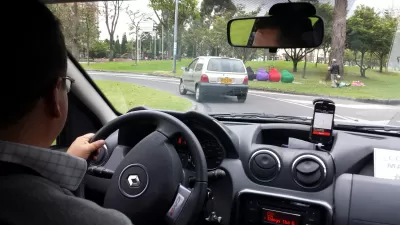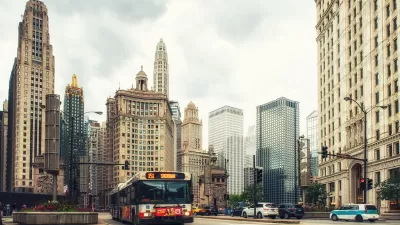The track record of the public sector keeping up with mobility innovations varies by geography and level of governance. According to this article, it's imperative that the public sector keeps up with the pace of private sector innovation.

Ratna Amin begins a recent opinion piece for SPU with a question: "When you hop between bus, bike sharing, taxi and train, whose app are you going to use? Who is going to manage that experience?"
The question is probably easy for most people to answer—there are apps for directions while driving, apps for letting someone else do the driving, apps for renting bikes and scooters, apps for public transit, and even apps for choosing the prettiest route to walk—there are even apps that combine most or all of these modes.
As the mobility-as-a-service (MaaS) market has evolved, companies like Uber have gone multi-modal, and Ratma expresses concern about the consequences of allowing the private sector to dominate the mobility app market. In fact, Ratma details six potential consequences of private sector dominance of MaaS:
- A restricted marketplace limits options
- Public transportation loses relevance
- Private management reduces access and equity
- People have less incentive to make sustainable choices
- Restricted data limits our ability to manage our transportation systems
- Transportation services diverge further
Ratma also describes the many forms public sector stewardship of the mobility experience could take. A first step toward an a more influential role for the public sector is choosing the agency or agencies "responsible for creating and implementing the region’s MaaS vision."
FULL STORY: Why We Can’t Leave Transportation Apps to the Private Sector

Maui's Vacation Rental Debate Turns Ugly
Verbal attacks, misinformation campaigns and fistfights plague a high-stakes debate to convert thousands of vacation rentals into long-term housing.

Planetizen Federal Action Tracker
A weekly monitor of how Trump’s orders and actions are impacting planners and planning in America.

In Urban Planning, AI Prompting Could be the New Design Thinking
Creativity has long been key to great urban design. What if we see AI as our new creative partner?

King County Supportive Housing Program Offers Hope for Unhoused Residents
The county is taking a ‘Housing First’ approach that prioritizes getting people into housing, then offering wraparound supportive services.

Researchers Use AI to Get Clearer Picture of US Housing
Analysts are using artificial intelligence to supercharge their research by allowing them to comb through data faster. Though these AI tools can be error prone, they save time and housing researchers are optimistic about the future.

Making Shared Micromobility More Inclusive
Cities and shared mobility system operators can do more to include people with disabilities in planning and operations, per a new report.
Urban Design for Planners 1: Software Tools
This six-course series explores essential urban design concepts using open source software and equips planners with the tools they need to participate fully in the urban design process.
Planning for Universal Design
Learn the tools for implementing Universal Design in planning regulations.
planning NEXT
Appalachian Highlands Housing Partners
Mpact (founded as Rail~Volution)
City of Camden Redevelopment Agency
City of Astoria
City of Portland
City of Laramie





























